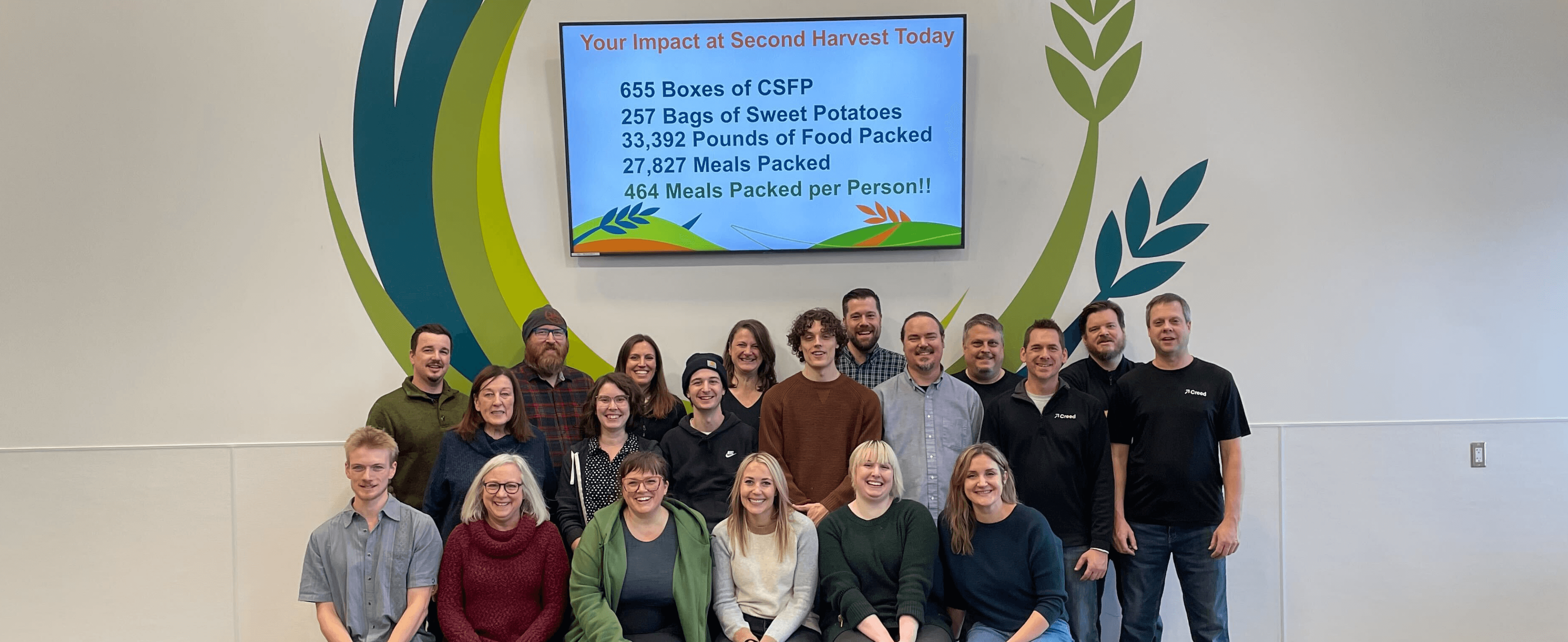Future-Proofing Your Technology Skills for Long-Term Success in the Tech Industry
As the tech industry continues to surge forward, new platforms, tools, and frameworks emerge at breakneck speed. In this high-velocity environment, it’s no longer sufficient to simply keep pace with today’s trending technologies—you need a forward-looking strategy that ensures your skill set stays relevant tomorrow, next year, and well into the future. Future-proofing your technology skills goes beyond mastering the latest programming language or design trend; it’s about embracing continuous learning, cultivating a growth mindset, and adapting to an industry where change is the only constant.

At Creed, we understand that preparing for tomorrow’s challenges isn’t about crystal ball predictions. It’s about developing the flexibility and resilience to thrive amid uncertainty. As Creed’s CTO, I’ve witnessed how tech professionals who nurture a dynamic, ever-evolving approach to their careers become invaluable contributors to their organizations. They’re the ones who remain resourceful, innovative, and primed for long-term success in an industry defined by rapid transformation.
In this blog post, we’ll explore actionable strategies for future-proofing your technology skills. We’ll delve into how to stay informed about emerging technologies, expand your problem-solving toolkit, and refine soft skills that help you navigate cross-functional teams and complex projects. By adopting these methods, you’ll not only ensure the longevity of your career but also help shape the tech industry’s future, creating products and solutions that matter.
The Importance of Future-Proofing Your Technology Skills
Embracing Continuous Digital Transformation
The digital landscape is in a state of perpetual metamorphosis. The solutions you rely on today may be outdated tomorrow. To remain competitive, embrace digital transformation as an ongoing journey rather than a one-time milestone. By proactively learning and experimenting, you position yourself to adapt as technologies evolve. This forward-thinking mindset empowers you to anticipate market shifts and tackle emerging challenges head-on.
Enhancing Career Resilience
Future-proofing your technology skills ensures your professional relevance endures, regardless of trends or downturns. Beyond the technical know-how, developing communication and leadership abilities helps you thrive in cross-functional teams. These capabilities transcend specific tools and languages, making you more resilient in the face of automation, industry consolidation, or unexpected business changes. A career fortified with both technical depth and adaptability is more likely to remain stable and fulfilling over the long run.
Contributing Strategic Value to Your Organization
At Creed, we believe that when tech professionals blend technical expertise with a people-first approach, they become catalysts for sustainable innovation. By staying ahead of the curve, you’re not merely fulfilling a role—you’re guiding strategy, identifying opportunities, and helping your organization build better, more impactful digital products. Future-proofing your skills ensures you continue to add value and stand out as a trusted advisor within your team and to clients.
Strategies for Future-Proofing Your Skills
1. Cultivate a Growth Mindset
A growth mindset is the foundation upon which all other future-proofing strategies rest. It involves seeing every challenge, setback, and obstacle as an opportunity to learn and grow. Instead of viewing failures as dead ends, regard them as stepping stones. Whether you’re exploring a new JavaScript framework or experimenting with a cutting-edge UX design tool, perseverance and resilience are key.
Action Steps:
- Embrace constructive feedback from mentors, peers, and managers.
- Set incremental goals to track progress and celebrate small wins.
- Approach emerging technologies with curiosity rather than skepticism.
2. Commit to Lifelong Learning
In an industry that evolves daily, continuous education isn’t optional—it’s vital. Thanks to the digital era, resources for learning are abundant and accessible. Online courses, webinars, coding bootcamps, and thought leadership podcasts abound. By dedicating time each week to stay informed, you maintain a competitive edge.
Action Steps:
- Schedule regular learning sessions to explore new technologies or review foundational concepts.
- Enroll in professional certification programs that validate your expertise.
- Follow tech thought leaders and subscribe to industry newsletters for timely insights.
3. Diversify Your Skill Set
Overreliance on a single language, tool, or platform can make you vulnerable. In a field where technologies come and go, diversifying your skill set enhances your versatility. While specialization has its place, exploring adjacent domains—like learning a new programming language or delving into DevOps practices—can insulate you against sudden industry shifts.
Action Steps:
- Each year, pick one new technology to learn—be it a different framework, a new cloud service, or a machine learning library.
- Develop non-technical skills like user experience principles or agile project management.
- Volunteer for cross-functional projects to broaden your perspective and improve team collaboration.
4. Keep a Pulse on Emerging Technologies
Staying ahead of emerging technologies is essential for future-proofing your career. Whether it’s augmented reality, blockchain, quantum computing, or advanced AI and machine learning, understanding new frontiers prepares you to pivot swiftly and seize opportunities early.
At Creed, we encourage our teams to experiment, share articles, and attend industry events. Being proactive ensures you won’t be caught off guard. Instead, you’ll anticipate shifts and be ready to lead the charge when your organization decides to adopt new solutions.
Action Steps:
- Follow reputable tech publications, research institutions, and standards organizations.
- Experiment with beta releases, trial editions, or sandbox environments.
- Participate in webinars, hackathons, and meetups centered on emerging technologies.
5. Network Within the Tech Community
Technology is built by people. By connecting with a community of professionals—developers, designers, product managers, and researchers—you gain more than just updates on the latest tools. Networking opens doors to mentorship, job referrals, and collective learning. These relationships can guide your career decisions, spark creative collaborations, and provide a support system as you navigate industry changes.
Action Steps:
- Attend industry conferences, workshops, and networking events.
- Join online forums, Slack groups, LinkedIn communities, and other virtual spaces.
- Offer your expertise and assistance, fostering trust and reciprocity within your network.
6. Focus on Principles Over Tools
Today’s hottest framework might be tomorrow’s old news. Instead of tying your professional identity to specific technologies, anchor it in broader problem-solving capabilities. Understanding algorithmic thinking, system architecture, design principles, and robust testing methodologies will help you adapt to any environment. Problem-solving transcends individual tools, ensuring that no matter which framework or platform is in vogue, you remain an asset.
Action Steps:
- Dive deeper into fundamental concepts: data structures, design patterns, and architectural best practices.
- Document case studies of how you’ve approached complex problems, highlighting your methodology rather than just tools used.
- Explore universal UX patterns that apply regardless of device or platform.
7. Hone Collaboration and Communication Skills
In an increasingly interconnected tech industry, products are built by multidisciplinary teams. Strong communication and collaboration skills are just as crucial as technical prowess. If you can clearly explain your ideas to non-technical stakeholders, work seamlessly with designers, and mentor junior colleagues, your value skyrockets. Excellent communicators become leaders, bridging gaps and ensuring everyone moves toward a common goal.
Action Steps:
- Volunteer to present at internal “lunch and learn” sessions or external meetups.
- Seek feedback from non-technical teammates to refine how you convey complex information.
- Embrace tools and processes that streamline cross-functional teamwork, such as agile methodologies.
8. Seek and Offer Mentorship
Mentorship is a two-way street that fuels professional growth. A mentor can guide you through unfamiliar territories, recommend resources, and help map out your career trajectory. Conversely, when you mentor others, you reinforce your knowledge, improve your communication skills, and stay current on emerging questions and trends.
At Creed, we’ve witnessed the transformative power of mentorship. Junior developers who receive guidance flourish quickly, and mentors gain fresh perspectives from their mentees. It’s a powerful cycle that benefits everyone involved, strengthening individual careers and the broader team.
Action Steps:
- Identify a mentor who aligns with your career goals and learn from their experiences.
- Offer mentorship to newcomers or colleagues exploring new technical areas.
- Schedule regular check-ins to discuss challenges, track progress, and celebrate growth.
9. Stay Open to Reinvention
The tech industry never stops evolving, and neither should you. Being future-proof means being willing to reinvent yourself periodically. Maybe you started as a front-end developer but discovered an affinity for data science. Perhaps a new paradigm, like serverless computing, captures your imagination. Embrace these transitions. Reinvention doesn’t invalidate your prior experience; instead, it builds upon it, adding layers of expertise that make you indispensable.
Action Steps:
- Periodically reassess your career path, identifying new interests and market demands.
- Update your portfolio and résumé to reflect skills that align with current and future trends.
- Maintain a beginner’s mindset and celebrate the excitement of exploring new domains.
Future-proofing your technology skills isn’t about knowing what the tech industry will look like five or ten years down the line—it’s about cultivating resilience, adaptability, and curiosity today. By embracing a growth mindset, committing to continuous learning, and fostering collaboration, you prepare yourself for whatever twists and turns the market may present.
At Creed, we’ve seen how dedicated professionals who stay curious, flexible, and connected create lasting impact. These individuals don’t just follow trends; they help shape them. By continually evolving your skill set, investing in personal and professional development, and contributing to a community that values people-first ingenuity, you’ll be well-equipped to navigate the ever-changing currents of the tech industry.
Are you ready to future-proof your career and become a transformative force in the tech industry? At Creed Interactive, we value ingenuity, dedication, and mutual respect—and we’re always looking for individuals who share these principles.
Explore Our Opportunities: Visit Creed Interactive’s Careers Page to learn more about our open positions and our dynamic, people-first culture.
Join the Conversation: Follow us on LinkedIn and subscribe to our newsletter for insights on emerging technologies, industry best practices, and the human-centered approach that sets Creed apart.
By investing in your growth today, you pave the way for a thriving career tomorrow. Let’s shape the future of the tech industry—together.

